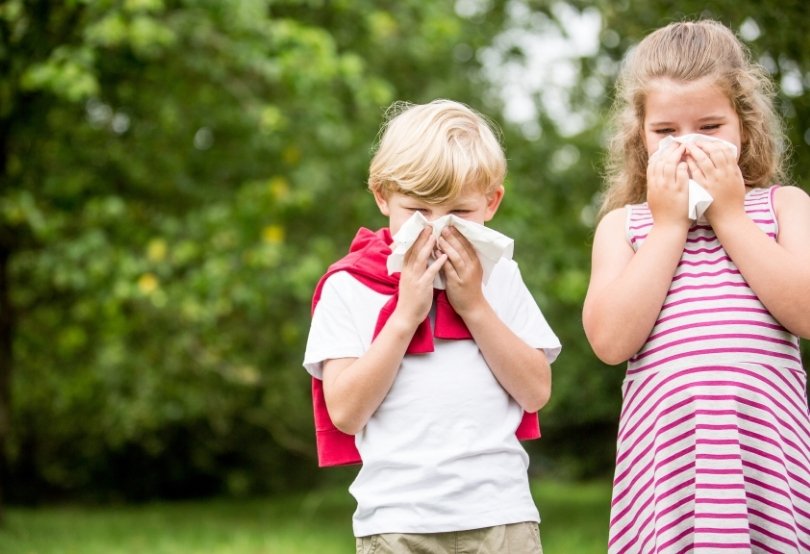
What is Eye Allergy?
Eye allergy, also known as allergic conjunctivitis, occurs when the eyes react to allergens such as pollen, dust mites, pet dander, or mold. When these allergens come into contact with the sensitive tissues of the eyes, the immune system overreacts, releasing histamine and other chemicals, which cause inflammation, itching, and redness. Eye allergies can be seasonal, occurring during specific times of the year, or perennial, occurring year-round due to indoor allergens.
Eye allergies are a common condition and can occur on their own or in conjunction with nasal allergies or asthma. While uncomfortable, eye allergies are generally not harmful to vision.
What Causes Eye Allergy?
Eye allergies are triggered when the eyes come into contact with allergens, substances that cause an allergic reaction in sensitive individuals. Common allergens that trigger eye allergies include:
– **Pollen:** From trees, grasses, and weeds, which is more common in spring and fall.
– **Dust Mites:** Tiny organisms found in household dust that can trigger allergic reactions.
– **Pet Dander:** Proteins found in the skin flakes, saliva, and urine of pets.
– **Mold Spores:** Fungi that grow in damp indoor and outdoor environments.
– **Smoke and Pollution:** Environmental irritants that can exacerbate allergy symptoms.
What Are the Types of Eye Allergy?
There are several types of eye allergies, each with unique triggers and symptoms:
1- Seasonal Allergic Conjunctivitis (SAC)
This is the most common type of eye allergy and is triggered by outdoor allergens like pollen. SAC occurs seasonally, typically during spring, summer, or fall, and causes symptoms like redness, itching, and watery eyes.
2- Perennial Allergic Conjunctivitis (PAC)
PAC occurs year-round and is caused by indoor allergens such as dust mites, pet dander, and mold. Symptoms are usually milder than seasonal allergies but can persist throughout the year.
3- Vernal Keratoconjunctivitis (VKC)
VKC is a more severe form of eye allergy that primarily affects children and young adults, especially boys. It is often associated with spring and summer and can cause intense itching, thick mucus discharge, and light sensitivity.
4- Atopic Keratoconjunctivitis (AKC)
AKC is a chronic eye allergy that affects adults, particularly those with a history of eczema. It can cause persistent itching, redness, and swelling and may lead to more serious eye complications if left untreated.
What Are the Symptoms of Eye Allergy?
The symptoms of eye allergies can range from mild to severe and typically include:
– Itching and irritation of the eyes
– Redness and swelling of the eyelids
– Watery or teary eyes
– Sensitivity to light (photophobia)
– Blurred vision or a feeling of grittiness in the eyes
These symptoms often occur alongside nasal allergy symptoms like sneezing, runny nose, or nasal congestion.
What is Good for Eye Allergy?
Managing eye allergies involves avoiding allergens and using medications to relieve symptoms. Some effective strategies include:
– **Avoiding Allergens:** Stay indoors during high pollen seasons, keep windows closed, and use air purifiers to reduce indoor allergens.
– **Using Cold Compresses:** Applying a cold compress to the eyes can help reduce itching and swelling.
– **Wearing Sunglasses:** When outdoors, sunglasses can help protect the eyes from pollen and other airborne allergens.
– **Over-the-Counter Eye Drops:** Artificial tears or antihistamine eye drops can provide relief from itching and redness.
How is Eye Allergy Diagnosed?
Eye allergies are diagnosed through a combination of medical history, symptoms, and physical examination of the eyes. An allergist or eye doctor may ask about the timing and triggers of symptoms. In some cases, allergy testing, such as skin prick tests or blood tests, may be conducted to identify specific allergens.
An eye examination may include checking for signs of inflammation and swelling in the conjunctiva (the clear tissue covering the white part of the eye) and ruling out other conditions, such as infections.
How is Eye Allergy Treated?
The treatment of eye allergies typically involves medications and lifestyle changes to reduce exposure to allergens. Common treatments include:
1- Antihistamine Eye Drops
Antihistamine eye drops help block histamine, a chemical released during an allergic reaction, relieving itching and redness.
2- Decongestant Eye Drops
These eye drops reduce redness by constricting blood vessels in the eyes. However, they should be used with caution, as long-term use can lead to rebound redness.
3- Corticosteroid Eye Drops
For severe symptoms, corticosteroid eye drops may be prescribed to reduce inflammation. These should only be used under medical supervision due to potential side effects.
4- Oral Antihistamines
In some cases, oral antihistamines may be used to treat both eye and nasal allergy symptoms.
Frequently Asked Questions About Eye Allergy
Can Eye Allergies Affect Vision?
While eye allergies can cause temporary blurred vision due to irritation and swelling, they typically do not cause permanent damage to the eyes. However, severe forms of eye allergy, such as vernal keratoconjunctivitis, can lead to complications if left untreated.
Can Eye Allergies Be Prevented?
Eye allergies cannot be completely prevented, but symptoms can be minimized by avoiding known allergens and taking precautions during allergy season. Regularly cleaning your home, using air filters, and keeping pets out of the bedroom can help reduce allergen exposure.
Are Eye Drops Safe for Long-Term Use?
Over-the-counter eye drops, such as artificial tears and antihistamine drops, are generally safe for occasional use. However, decongestant and corticosteroid eye drops should only be used for short periods, as prolonged use can lead to side effects such as rebound redness or increased eye pressure.
Why Choose Us?
Our clinic specializes in allergies and allergy testing, and we stand out in the field of health tourism with the high standards of service we provide. Here are the key reasons why you should choose us:
Expert Doctor Team
At our clinic, we have highly experienced doctors at the professor level who are experts in the field of allergies. With years of experience in allergy treatment and testing, we provide the most accurate diagnosis and treatment processes. Our professor is skilled in managing even the most complex allergy cases and delivering the most effective solutions.
Cutting-Edge Allergy Tests
Your health is our top priority. In our clinic, we use state-of-the-art allergy testing technologies that are recognized globally. This allows us to obtain the most accurate and rapid results, ensuring that your treatment plans are created in the best possible way. Our tests are conducted according to international standards.
Comfort and Luxury Services
We don’t just focus on treatment; we also aim to provide a comfortable experience. During your treatment, we offer five-star hotel accommodations to ensure you feel at home throughout the process. Your comfort is guaranteed with the luxurious services we provide.
Transfer and Transportation Convenience
For patients coming from abroad or from other cities, we offer VIP transfer services. From the airport to our clinic, and from our clinic to your hotel, we are with you every step of the way. We take care of every detail to ensure your comfort and safety.
Personalized Approach
Every patient’s health condition is unique, and we tailor our solutions to meet each individual’s specific needs. Throughout your treatment process, we stay closely connected with you, and our professional team is by your side every step of the way.






